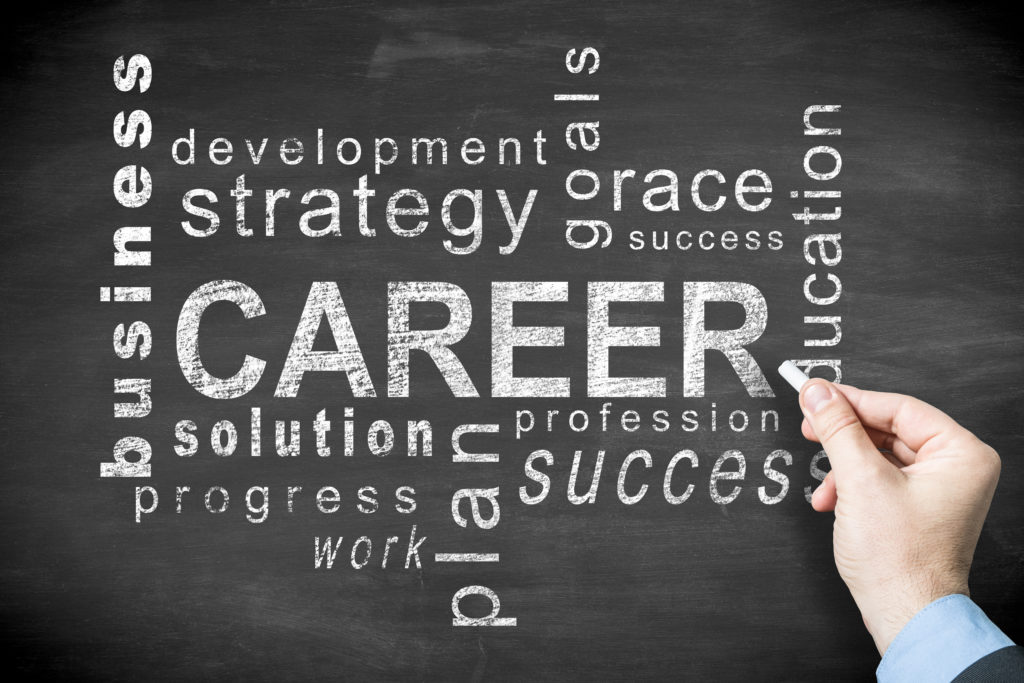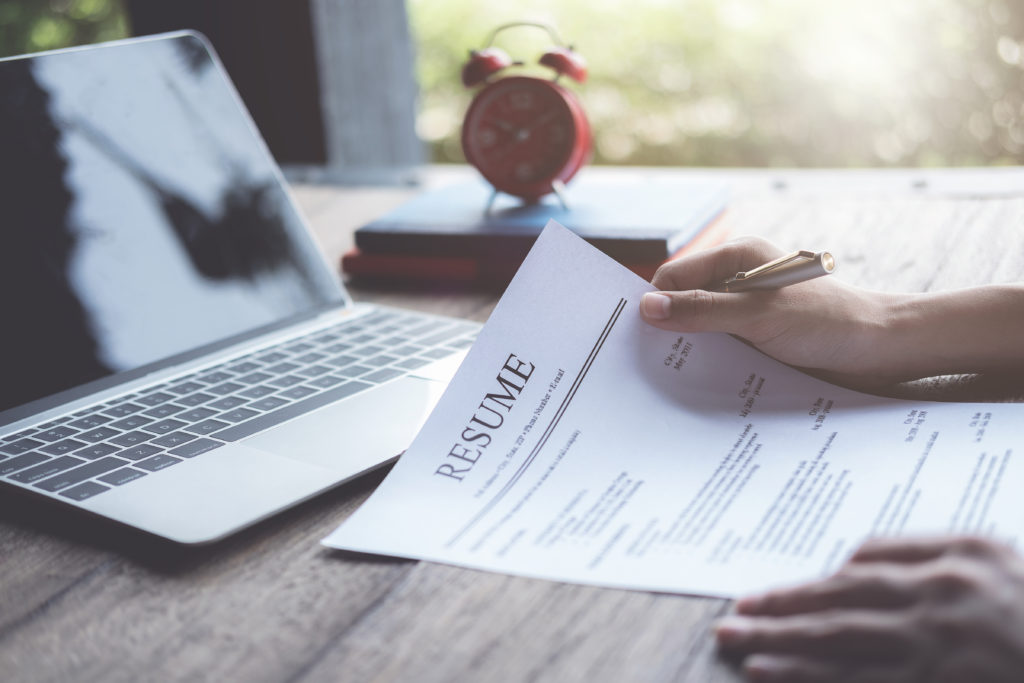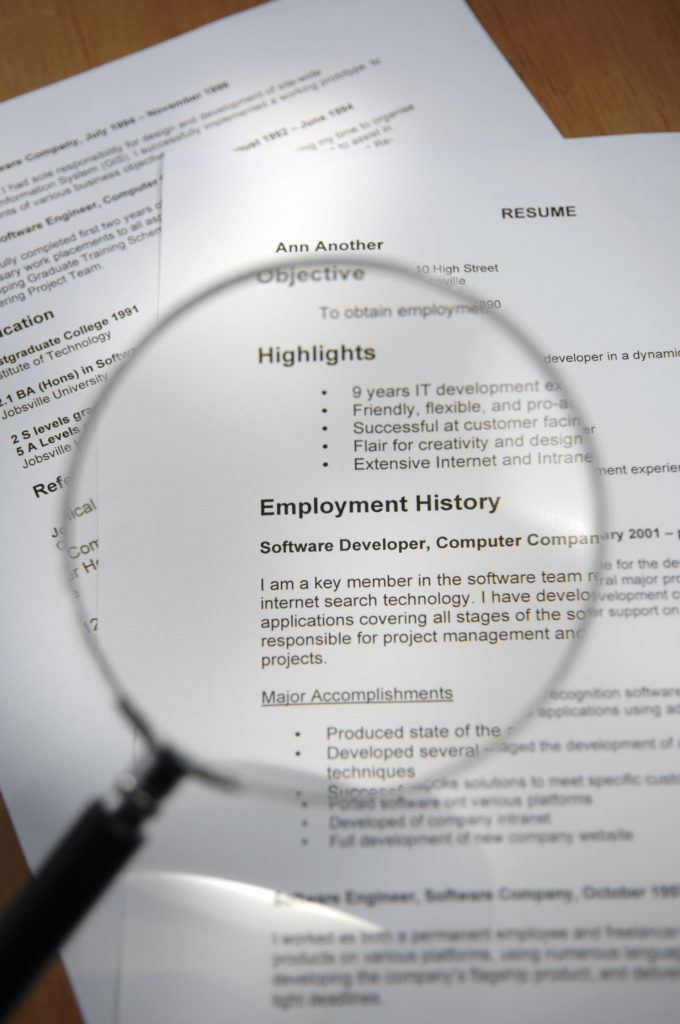Career Services

Economists estimate that most Americans entering the labor force at age 22 will change jobs seven times before they retire.
Each transition requires education, and we are here to help. Most of our career enhancement courses are focused on health professions, but there is more. We have returning students taking welding courses at night and college courses during the day. And we are nimble. If you have a specific type of training you need for your next job, let us know; we have access to tremendous resources at Western Wyoming Community College and the University of Wyoming that we can help you use for your career-changing education.
Career Inventories
Not sure what career path to choose? Start with an online career inventory!
Resume Writing Tips

- Create a professional email address.
Good: john.smith@gmail.com Not good: johnlikesgrapes@hotmail.com
- Update your contact information.
After you change your email address, make sure the rest of your contact information is up to date.
You don’t want to miss an interview because you put the wrong phone number on your resume.
- Also, exclude information like your birth date or marital status.
You do not have to respond to questions about religion, race, or gender on an application. US employers cannot take these aspects into consideration when accessing you.
- Align your content to the left to make it skimmable.
The first thing a hiring manager is going to do is skim your resume for relevant keywords from the job description. Aligning your text to the left makes this easier for them to do.
- Make strategic use of bold, caps, and italics.
Be consistent with your choices. If one of your subheadings is bold – make them all bold. Try not to overuse anything. The point is to make important information easier to find.

- Choose an attractive and readable font.
You may think fonts are trivial in the larger scheme of things, but the right font is going to do a lot for your resume.
Good Choices: Verdana, Arial, Helvetica Not so good: Comic Sans, Papyrus, Curlz MT.
If you choose a font that is hard to read or childish, a hiring manager might toss your resume in the trash.
- Read the job description and then read it again.
Reading the job description may sound like one of the most obvious resume tips ever. You’ve got to make sure you have the skills necessary for the job in the first place.
Read the job description. Make sure you’re qualified. Read it again. Mine it for keywords. Because that job description is your best friend when it comes to building a great resume.
Tailor your resume to the job description.
Remember: Reading a job description is as close as you’re going to get to reading the recruiter’s mind.
- Consider using a resume template.
There are many to choose from online, or in Microsoft Word.
Have someone you trust look over your resume to check for spelling and grammatical errors, as well as, overall flow.
- Save your resume as a PDF and a word document. It’s good to have your resume saved in a couple different formats.
Interview Tips
Before the Interview
– Research the company you are interviewing with. Find out about their mission, their culture, what do they do, or what services they provide. Go through their website and social media sites.
– Make sure you arrive early to your interview. Do not arrive late.
– Always dress up for an interview. Take the time to look and feel great. If your clothes look good and feel good you are going to feel more confident. Does the company you’re applying to have a dress code? Even if an organization has a more casual dress code, it is a best practice to “dress-up.” It’s not like you are going to prom, but business attire works great.
- Do: Pay attention to details and check how you look from head to toe before leaving for the interview to make sure everything – including your hair, nails and shoes – is presentable. Do any final touch up ironing on your suit if need be.
- Do: Dress in layers so you can be comfortable regardless of the temperature.
- Do: Choose simple jewelry and be subtle with makeup.
- Don’t: Show up sporting wrinkled clothes or unkempt hair.
- Don’t: Overdo your use of perfume, cologne or body spray. Your interviewer’s nose may be turned off by heavy fragrance.
- Don’t: Assume you can “dress down,” even if you know a company has a very casual atmosphere.
– Come with your materials. Bring along a copy of your resume, any letters of reference and any other type of material, such as a portfolio, appropriate for the job interview. You’ll be prepared if you need this. Also, don’t just bring one copy; often there will be several interviewers and you don’t want to have them share.
– Review your resume. Yes, you think you know it forward and backward, but read it through one more time and think about possible interview questions that might arise. Prepare for questions on further detail, technical aspects, dates, etc. Also, when you answer try to fit in how it relates to the current position.
– Write an elevator pitch. An elevator pitch is a 30-second blurb about you: who you are, what you offer, what you can bring to the business. It helps you to focus on your own strengths and skills, which is important.
– Practice. Have a friend, mentor or parent sit down with you for a practice interview. Give them your elevator pitch. Have them ask you some typical interview questions and give your best answer.
During the Interview
– Practice common courtesy. “Yes, sir,” and “Yes, ma’am” are appropriate unless you are instructed otherwise. Don’t interrupt. Shake hands. Pull out those manners and use them.
– Maintain good posture. Stand up straight, walk tall and sit up straight in your chair.
– Don’t apologize for your lack of experience. They saw your resume and everyone is in the same boat. Instead, point out the merits of your education, your personal strengths, the skills you can bring and your drive to succeed.
– Answer questions honestly. Just don’t lie. Even if there’s something embarrassing or potentially problematic (a failed class, a DUI), when asked, you should answer honestly.
– But hold some details. Do not lay out every single detail of your family history and personal situation. Personal comments are okay, but they want to know if you can do the job and if you will be a safer, better choice than the others.
– Make eye contact. Making eye contact tells people you are sincere, confident and trustworthy.
– Use professional language. Even if the interviewer uses coarse language, don’t follow suit. Maintain a level of professionalism in how you talk by holding the coarse jokes and expletives. As a student interviewing for a job, you may not be able to bring years of experience to the table, but you do bring ambition, fresh perspective, willingness to work hard and plenty of other valuable assets.
After the Interview
Send a thank you email addressed to the interviewers. It does not have to be long, but it should be grammatically correct. Thank the interviewer for their time and reiterate that you are interested in the opportunity. You might not have felt it, but you were also evaluating the company and interviewing them, so let them know you are still interested.
Wyoming Department of Workforce Services
Learn about local job opportunities, get matched with open jobs, and receive additional assistance on resumes and employment applications!
